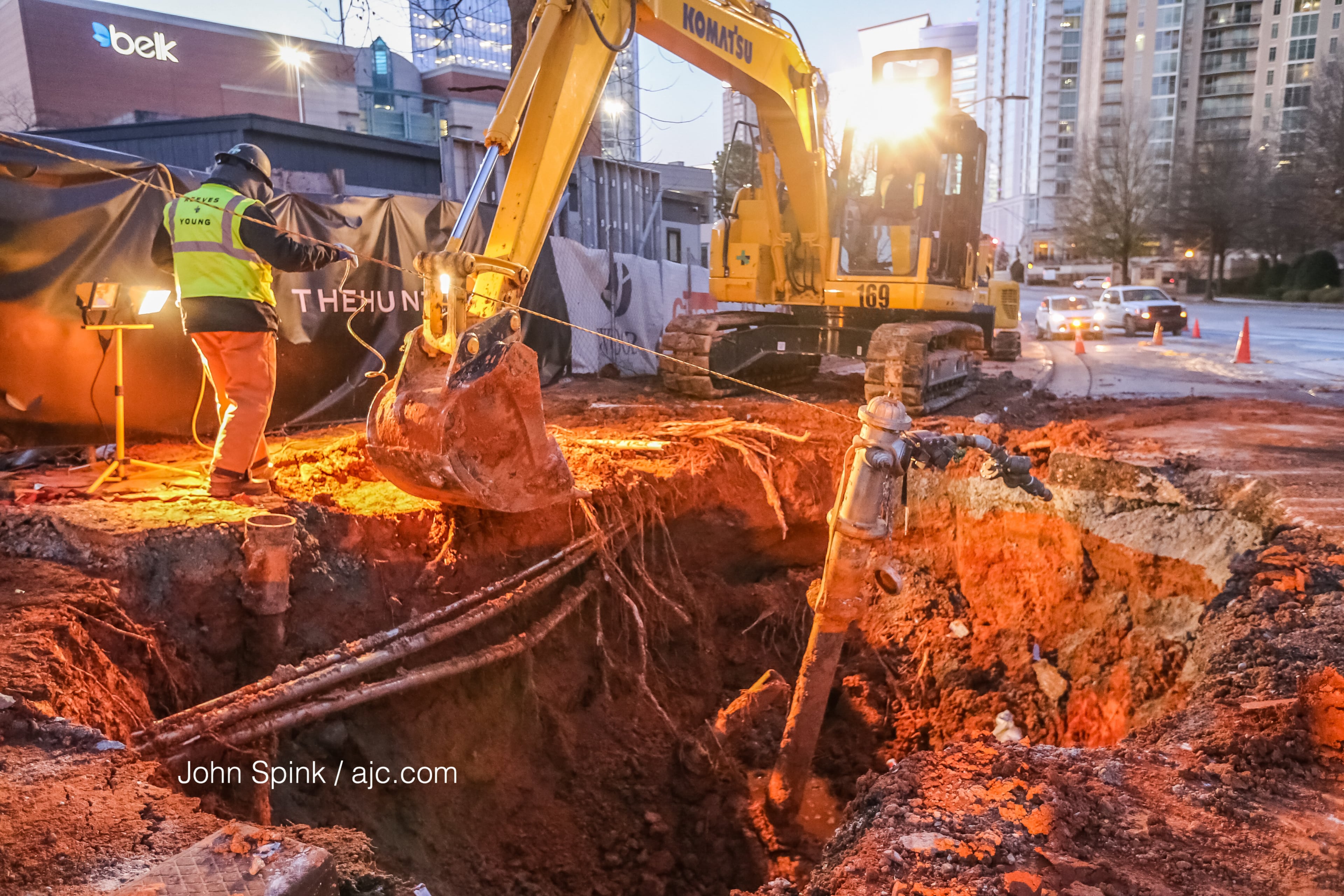Shiver through the weekend, but Monday will be near 50

Well, Atlanta. It really could have been worse.
We escaped the brunt of the enormous winter storm that encrusted the Georgia and South Carolina coasts with snow this week.
The so-called “bomb cyclone” is moving north to batter the upper reaches of the East Coast with damaging winds and heavy snow. Metro Atlanta will continue to feel the residual effects of the storm through Sunday: Channel 2 Action News is forecasting a low of 16 on Friday, with wind chills in single digits. Lows Saturday and Sunday will be in the low 20s.
But relief could be here in time for Monday’s championship game between Georgia and Alabama. Brad Nitz, Channel 2 Action News meteorologist, is calling for highs near 50 on game day.
But Nitz underscored the dangers confronting us between now and then. With temperatures in the teens and winds at 7 to 9 mph, the wind chill will drop to the single digits in Atlanta, he said. Parts of the north metro area, and north Georgia from Rome to Blairsville, are likely to have wind chills down to 10 below zero.
A wind-chill advisory is in affect from 6 p.m. Thursday through 9 a.m. Friday for the following counties: Dade, Walker, Catoosa, Whitfield, Murray, Fannin, Gilmer, Union, Towns, Chattooga, Gordon, Pickens, Dawson, Lumpkin, White, Floyd, Bartow and Cherokee.

The risk of frostbite rises with each falling degree. With wind chills between 0 to minus 10, frostbite can set in after 30 minutes on exposed skin, and hypothermia may occur. It’s best to dress in layers, even if you’re outside for only a few minutes. Or, as Channel 2’s Karen Minton put it Thursday, “Please, please wear the coat and the hat and the gloves and the scarf.”
At bus stops, don’t allow children to remain outside long.
Cold as it is here, things are really bad on the beach.
Blizzard warnings extend from the Virginia Tidewater region up the coast to eastern Maine. These areas can expect or are already witnessing snowfall of up to 3 inches an hour, thunder, snow and wind gusts of 50 to 80 mph.
The storm strengthened at an astonishing rate since Wednesday, surpassing the meteorological criteria to be considered a “bomb cyclone,” the Washington Post said Thursday. A storm is classified as such if its pressure falls 24 millibars in 24 hours. This storm’s pressure tanked 53 millibars in 21 hours (and 59 millibars in 24 hours), which puts it into the upper echelon of the most explosive East Coast storms ever observed — and perhaps even at the top, the Post said.
For the rest of the East Coast, the storm is turning into a dangerous and historic one. Its enormous circulation will help draw the polar vortex, the frigid air encircling the North Pole, over the Mid-Atlantic and Northeast by Friday and Saturday. The Mid-Atlantic and Northeast are predicted to set record cold temperatures Friday and Saturday.
The storm did not visit blizzard conditions on the Georgia coast, but folks there have rarely seen what they saw this week.
“It was the intensity of it that surprised us, and it got a lot colder than we had expected,” Senior U.S. District Judge Willis Hunt, who has a home in McIntosh County. His neighborhood also lost power for several hours.
“After Hurricane Irma, I had decided to buy a generator because we didn’t want to lose power again,” Hunt said. “So I decided we’d get one in the early spring or summer before hurricane season arrived. I never thought for one minute I might need one because of a snowstorm down here.”
Nitz pointed out that, here in Atlanta the low temperatures we’re seeing are “not all that unusual for January.” Record lows for the first week of January are in the single digits. The last time Atlanta was in the mid-teens, as it has been this week, was a year ago, he said.
Even so, people in Atlanta tried to take shelter from the cold where they could on Thursday.
Adam Harris, 46, of Atlanta was shopping for his mother at Phipps Plaza. He was bundled in a down coat and scarf.
“You see what I have on, and I’m still cold,” Harris said. “I’m originally from Houston so I’m used to the heat. This is cold!”
Part of the mall and some surrounding apartment and condominium towers were affected by a nearby water main break early Thursday. The Atlanta Department of Watershed Management said it was unclear what caused the break.
Local crews have dealt with 16 water main breaks in the past two days, Channel 2 reported. It quoted a city official as saying that such disruptions have gone from four or five a day in normal weather to about 12 in the current deep freeze.
The Washington Post and staff writers Bill Rankin, John Spink and Lauren Foreman contributed to this article.


